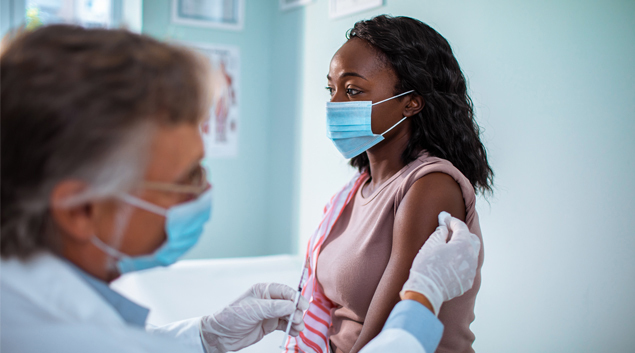
COVID-19 has brought racial disparities in healthcare to the forefront as the pandemic has cast light on where there are failings.
HIMSS this year evolved its annual National Health IT Week to Global Health Equity Week from October 19 to 23, to encourage a global week of action with policymakers and decision-makers, said Terri Ripley, chair of the HIMSS Public Policy Committee, who spoke to HIMSSTV about the committee’s work.
“Specifically,” Ripley said, “we’re asking for everyone’s help telling Congress to take decisive action to urge members of Congress to enact critical policy changes that will help realize the value and potential of health information and technology to improve access to care for all communities.”
HIMSS20 Digital
Learn on-demand, earn credit, find products and solutions. Get Started >>
Technology and data needs include widespread access to affordable broadband connectivity, an advanced patient identification strategy, necessary funding for a national public health surveillance system and the appropriate use of telehealth for prenatal care, according to Ripley and the other experts.
On Wednesday, the focus was on improving maternal mortality.
“Maternal mortality is unacceptably high and according to the World Health Organization, ending preventable maternal death must remain at the top of the global agenda,” said moderator Denise Hines, chief Americas officer for HIMSS during the HIMSS webinar “Policy and Practice: Taking action to Improve Maternal Health Outcomes.”
Diversity in the workforce also matters, Hines said because outcomes are more effective when you’re “being treated by someone who looks like you,” she said.
While the United States ranks poorly for maternal mortality deaths, it has the resources to do better, said Amanda Pears Kelly, executive director of the Association of Clinicians for the Underserved.
Efforts are already underway, she said, such as in a current bill before Congress on data mapping. The bill directs the Federal Communications Commission to include data on certain maternal health outcomes in its broadband health mapping by taking information from the Centers for Disease Control and Prevention.
Through the network of health systems across the country, this information can filter to the local community level and in turn influence policy makers.
One digital health solution that empowers the patient is the online platform, CrowdSource, which is curated by a professional, said Michael Crawford, associate dean for strategy, outreach and innovation at Howard University, College of Medicine. This resource can help expectant mothers to better manage their pregnancy,
There are all kinds of outcome payoffs for interventions prior to the birth of a child, said Leigh Burchell, vice president Health Policy and Industry Affairs for Allscripts.
Digital health for providers includes AI and population health data that shows who is not showing up for appointments or taking vitamins, Burchell said.
Work has to happen at both state and federal level, they said.
At the federal level, there are dozens of proposed bills led by members of the House and Senate on a bipartisan basis on the overarching issue of maternal health and health disparities.
One is named for Kira Johnson, a 39-year-old mother who died hours after giving birth to her second son, now 3-year old Langston. It was introduced by Representative Alma Adams (D-N.C.), co-founder of the Black Maternal Health Caucus.
Johnson, a Black woman, died as a result of an internal hemorrhage that was left untreated for 10 hours, according to her husband Charles Johnson, who sued Cedars-Sinai Medical Center in Los Angeles earlier this year, according to Fox19Now. Kira Johnson was a successful entrepreneur who spoke five languages, the report said.
Black women, regardless of education or socioeconomic status, are four times more likely to die from preventable pregnancy-related complications than women of other races, Adams said. In the U.S., the rate of maternal mortality is worse than it was 25 years ago, she said.
Adams introduced the Kira Johnson Act as part of the Black Maternal Momnibus of 2020, a package of bills addressing maternal health.
Republican Representative Michael Burgess of Texas, an ObGyn who is a member of the Black Maternal Health Caucus, supports extending Medicaid coverage for new mothers for up to one year after birth, instead of the current 60 days postpartum, in a bill that has passed the House.















